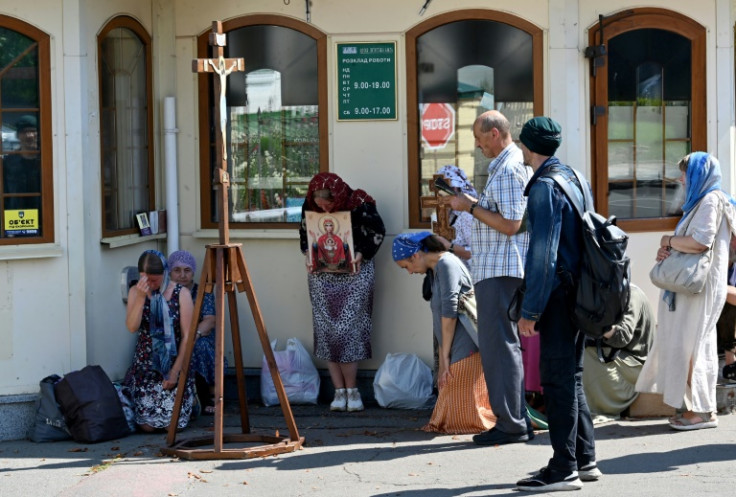
Ukraine's parliament on Tuesday voted to ban the Russia-linked Ukrainian Orthodox Church, as Kyiv cuts religious, social and institutional ties with bodies it considers aligned with Moscow.
Kyiv has been trying to curb spiritual links with Russia for years -- a process that was accelerated by Moscow's 2022 invasion, which the powerful Russian Orthodox Church endorsed.
A majority of MPs approved the bill outlawing religious organisations linked with Russia, including the Russia-linked Ukrainian Orthodox Church (UOC), which is linked to the Moscow patriarchate.
The bill needs to be signed by President Volodymyr Zelensky to come into force and will take years to implement, but still caused dismay among followers of the Ukrainian Orthodox Church.
In Kyiv, believers were praying outside the Russian-affiliated part of the historic Kyiv Pechersk Lavra monastery, a normal scene since the section was closed to the public last year.
"There's no politics here. We just come and pray for our children and our loved ones... I've never seen any KGB agents," said 56-year-old Svetlana, who declined to give her name due to the sensitivity of the question.
In a lilac dress and matching headscarf, Svetlana said she had been baptised and married in the church and worried about its potential full closure.
"If they close, people will still pray in the streets, maybe we'll put up tents, there will be prayers anyway," Svetlana said.
The schism between Ukrainian and Russian-linked Churches was triggered by Russia's annexation of Crimea in 2014 and the war between Kyiv and Moscow-backed separatists in the east.
The Istanbul-based head of the Eastern Orthodox Church granted a breakaway wing, called the Orthodox Church of Ukraine (OCU), autocephaly -- religious independence -- from the Moscow Patriarchate in 2019.
The Moscow-linked Ukrainian Orthodox Church officially broke ties with its Russian counterpart in 2022, but some lawmakers have accused its leaders of collaborating with Russian clergymen despite the invasion.
"Everything is political. There can be no such thing as art, sports, or even religion outside politics," reacted 21-year-old Igor.
He was in the Ukrainian-affiliated part of the Lavra monastery, which remains open.
"I actually totally support this ban," he said, accusing the Russian Orthodox Church of being a Kremlin agent that "has metastasized so much that we will be fighting it for decades."
The bill was welcomed by Zelensky's office.
"There will be no Moscow Church in Ukraine," Andriy Yermak, Zelensky's chief of staff, said on Telegram.
Lawmaker Iryna Gerashchenko called the vote historic.
"This is a matter of national security, not religion," she said in a post on Telegram.
In Moscow, Russian foreign ministry spokeswoman Maria Zakharova said Ukraine was trying to "destroy... true Orthodoxy."







